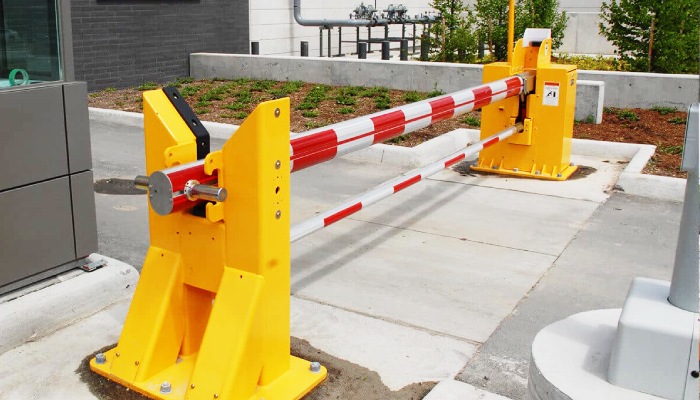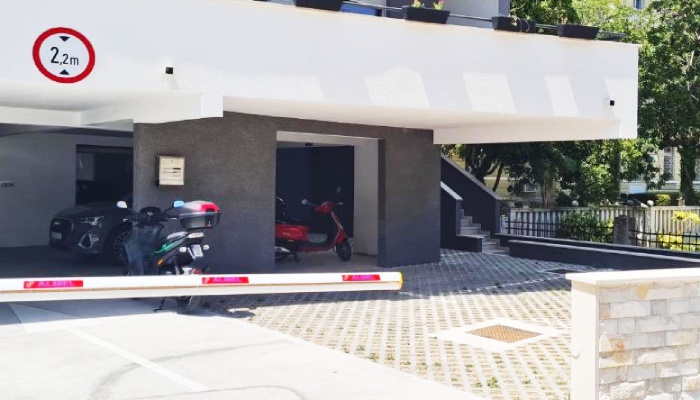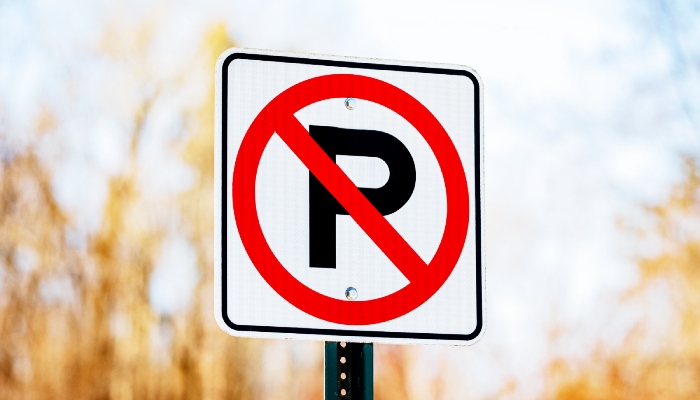
Ensuring Clear Access: Best Practices for Parking Near Private Entrances
Parking regulations are essential in maintaining order and ensuring the safety of both pedestrians and drivers. When it comes to parking near private entrances, particularly driveways, the rules are not just about following the law; they are about respecting the access needs of property owners. Blocking or obstructing a driveway can lead to significant inconvenience, safety hazards, and even legal consequences. Understanding how close you can park to a driveway is crucial for avoiding these issues and contributing to a safer, more harmonious community. This article will explore the best practices for parking near private entrances, focusing on the importance of clear access and compliance with Queensland’s parking regulations.
Understanding the Impact of Improper Parking on Access
Improper parking near private entrances, parking areas, or building entrances can cause more than just a minor inconvenience; it can significantly disrupt the daily lives of property owners and even pose serious safety risks. When a vehicle is parked too close to a driveway or parking spot, it can obstruct the line of sight for both drivers and pedestrians, increasing the likelihood of accidents.
For property owners, blocked access can lead to delays, frustration, and potential conflicts with neighbors, visitors, or other users of the owner or premises. Moreover, emergency vehicles may struggle to access properties quickly in situations where every second counts. Therefore, it is essential to be mindful of parking practices and adhere to premises standards to ensure that access remains clear and unobstructed at all times. Respecting these boundaries not only upholds the law but also promotes safety, mobility, and good neighborly relations in privately owned areas.

Legal Guidelines for Parking Near Private Entrances in Queensland
In Queensland, the law sets clear boundaries for how close vehicles can park to driveways, parking spots, and building entrances, ensuring that these access points remain unobstructed. The primary objective of these regulations is to provide property owners with unimpeded access while maintaining safety for all road users. Typically, vehicles must maintain a minimum distance of one meter from a driveway, though this can vary depending on specific local council regulations and Australian standards. This distance is crucial as it allows drivers entering or exiting the property to have a clear line of sight, reducing the risk of accidents.
Ignoring these guidelines can result in fines, penalties, and potential towing of the driver and offending vehicle. More importantly, it can cause significant inconvenience to property owners, who may find themselves unable to access their own premises. In more severe cases, improperly parked vehicles could obstruct emergency services, delaying critical response times.
It’s essential for all drivers to familiarize themselves with these legal requirements and remain vigilant for any posted signage that may indicate specific parking restrictions located in particular areas. Parking regulations are in place not only to uphold the law but also to ensure the smooth functioning of daily activities for everyone in the community. By respecting these guidelines, drivers can avoid legal repercussions and contribute to a safer, more accessible, and convenient environment for all. For those seeking more detailed information, consulting local council resources or official state guidelines is highly recommended.
Tips for Ensuring Clear Access When Parking
Maintaining clear access to parking spaces near private entrances is not only a legal requirement but also a matter of common courtesy. To ensure you are parking responsibly and not obstructing driveways or entrances, there are several practical tips you can follow.
First, always be mindful of the distance between your vehicle and any other barriers or nearby buildings or driveways. Even if the specific legal distance is not immediately clear, erring on the side of caution and leaving extra space can prevent potential issues. Look for any signage or road markings that indicate parking restrictions, as these will often specify the minimum distance required.
Second, consider the size and type of vehicle you are driving. Larger vehicles, such as trucks or SUVs, may require more space to avoid obstructing the path or visibility for drivers exiting a driveway. If you are driving a larger vehicle, it’s particularly important to be aware of how much space you are leaving.
Third, pay attention to the surrounding environment. For example, if you notice a property with frequent traffic, such as a business or a home with multiple vehicles, be extra cautious about where you park. Properties and spaces with high traffic flow require more clear access, and parking too close can lead to significant disruptions.
Finally, always double-check your parking after you’ve exited your vehicle. Take a moment to assess whether you’ve left enough space for vehicles to enter car park and exit nearby driveways safely. If you’re unsure, it’s better to reposition your vehicle than risk causing an obstruction.
By following these tips, you can help ensure that access to private entrances remains clear and that you are parking your car in a way or location that is both legal and respectful to others in the community.

Consequences of Violating Parking Regulations
Parking violations, particularly those involving the obstruction of private entrances or driveways, can have significant consequences that extend beyond a simple parking ticket. Understanding the potential repercussions is crucial for anyone who drives and parks in residential or commercial areas.
One of the most immediate consequences of violating parking regulations is the issuance of a fine. In Queensland, fines for parking too close to a driveway or in a restricted zone can range from moderate to substantial amounts, depending on the severity of the violation and whether it is a repeat offense. These fines are designed to deter improper parking and encourage compliance with local laws.
However, the financial cost of parking space is not the only consequence. Improper parking can lead to your vehicle being towed, which is both inconvenient and expensive. Retrieving a towed vehicle involves paying towing and storage fees, which can quickly add up. Additionally, having your vehicle towed may result in delays, missed appointments, off hours or other disruptions to your schedule.
Beyond the immediate legal and financial repercussions, parking violations can strain relationships within the community. Blocking a driveway or building entrance also can cause frustration and anger among property owners, leading to potential conflicts. In some cases, repeated violations may result in complaints being lodged with local authorities, which could lead to more serious legal actions or ongoing monitoring of your parking habits.
There are also safety implications to consider. Improperly parked vehicles or equipment can obstruct visibility, making it difficult for drivers to see pedestrians, cyclists, or other vehicles. This increased risk of accidents is a significant concern, especially in residential areas where children or pets may be present.
Ultimately, the consequences of violating parking regulations are designed to emphasize the importance of responsible and considerate parking. By adhering to the rules and being mindful of how car park will operate and where you park, you can avoid these negative outcomes and contribute to a safer, more harmonious community environment.
Promoting Community Awareness and Respect for Private Entrances
Building a community where parking regulations and the lines for private entrances are respected requires collective effort and awareness. It’s not just about individual responsibility but about fostering a culture where everyone understands and values the importance of clear access and entry to private properties.
One of the key strategies to promote this awareness is through education. Local councils, neighborhood associations, and community groups can help by spreading information about the importance of proper parking practices. This could include distributing educational materials, holding community meetings, or using social media platforms to remind residents of the regulations and the reasons behind them. When people are aware of the impact of their actions, they are more likely to park responsibly.
Property owners can also play an active role in maintaining clear access by clearly marking their driveways. Simple actions like putting up visible signs, using reflective markers, lighting up or keeping the area well-lit can help drivers easily identify where not to park. These measures not only serve as reminders but also help in preventing unintentional parking violations.
Moreover, fostering a spirit of mutual respect within the community is crucial. Encouraging open communication between neighbors about parking issues can help resolve conflicts before they escalate. If someone parks too close to a gate or a driveway, a polite conversation can often resolve the issue more effectively than involving authorities.
In cases where parking violations are a recurring problem, businesses and the community can work together to report these issues to local authorities. A collective approach can lead to more consistent enforcement of regulations and potentially even the implementation of additional measures to improve parking conditions in the area.
By working together and promoting awareness, communities can ensure that everyone respects private entrances and exits, leading to a safer and more harmonious living environment for all.

Conclusion
Ensuring clear access to private entrances is not just a matter of following parking regulations; it’s about being a considerate and responsible member of your community. By understanding the legal guidelines, being mindful of how you park, and respecting the needs of property owners, you can help maintain a safe and cooperative environment for everyone.
The consequences of improper parking can be significant, from fines and vehicle towing to strained neighborly relations. However, by promoting awareness and fostering a culture of respect, we can collectively create communities and car, where everyone’s rights and access are preserved. Remember, a small act of consideration, like parking responsibly, can have a big impact on the safety and harmony of your car parks and neighborhood.
This article is of a general nature and is intended for information only. It should not be relied upon as legal advice. If you require further information, advice or assistance for your specific circumstance, please contact us at Bouchier Khan Lawyers.
